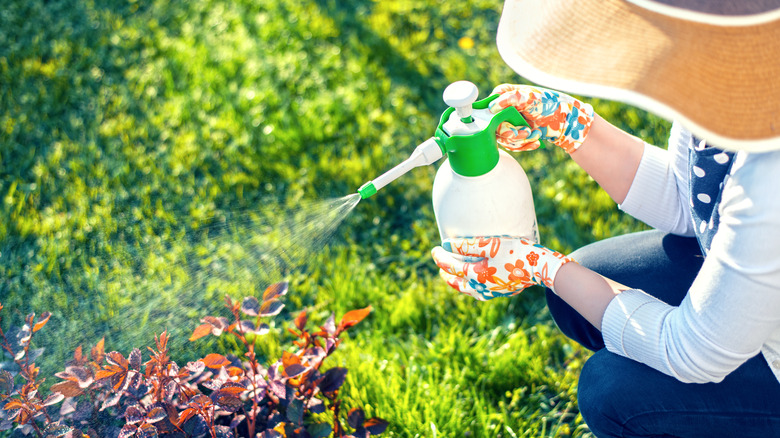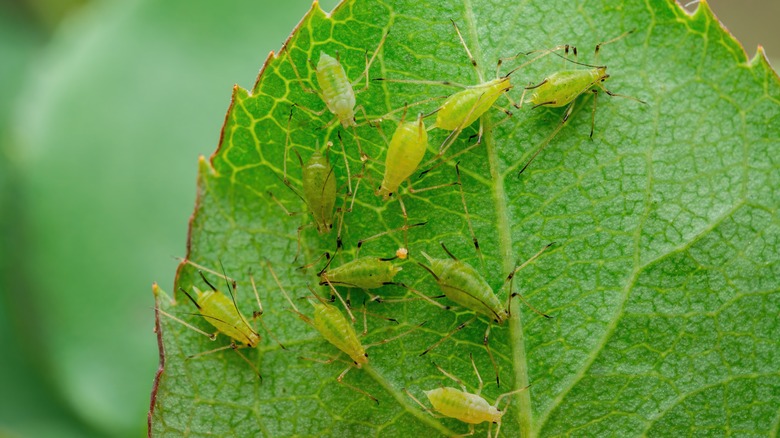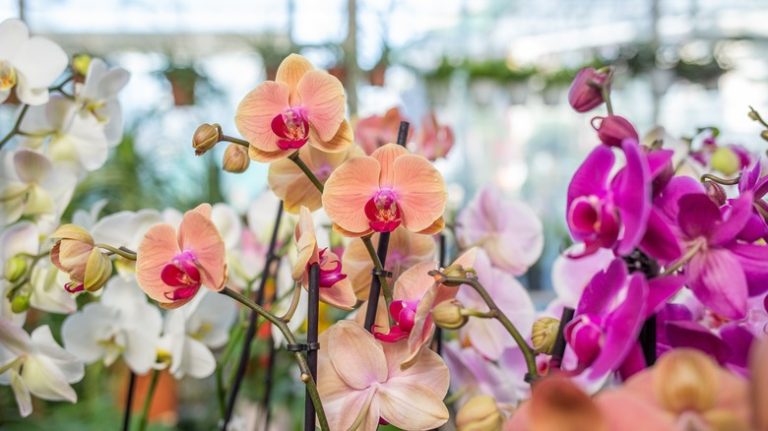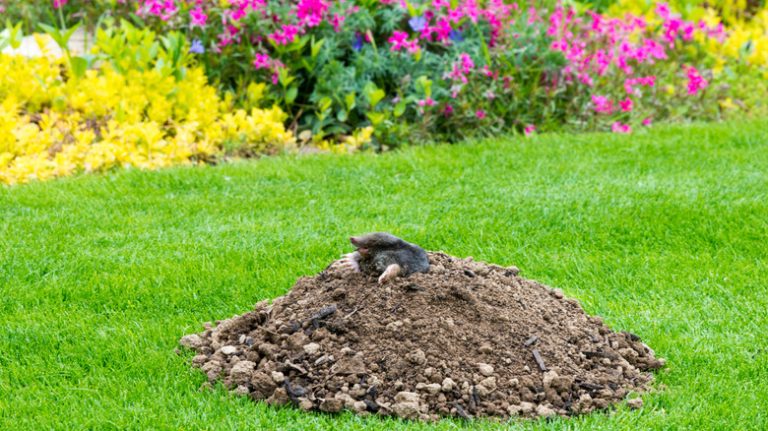You must act fast when aphids arrive in your garden, or the population will spiral out of control. Aphids drink from your plants and cause several issues like discolored leaves, galls, and transmitting diseases. They’re no fun to deal with, and you’ll likely have to treat them often since they multiply quickly. Using chemical pesticides frequently on your plants isn’t ideal, so try using tomato leaves to make a natural pesticide.
Yes, tomato leaves can be turned into a spray to battle aphids (and other pests, too). Tomatoes are part of the nightshade family, along with eggplants, potatoes, and peppers. These plants make up a large portion of many people’s diets, but the leaves of all the plants contain solanine, which is highly toxic when ingested. Solanine is this plant family’s way of defending themselves against pests. You can utilize this built-in pesticide to use on your other plants to get rid of aphids.
Use tomato leaves to combat aphids

To make a tomato leaf mixture, use a 1:1 ratio of tomato leaves and boiling water. So, if you use one quart of leaves, use one quart of water. Place the leaves into a container and pour in the boiling water. Allow the mixture to steep for at least an hour to extract the components that kill aphids. Once it has finished steeping and the water is cool, strain the liquid and squeeze out every last drop from the leaves. Pour some of the mixture into a spray bottle and dilute it with water. Now, you can spray it on aphids to kill them, although it’s not recommended to be used on any plant in the nightshade family.
You might be wondering if it really works. There are quite a few studies on this topic that have led to promising results. In a study published in the Journal of Environmental Science and Health, Part B, tomato leaf extracts were found to be effective against cowpea aphids and spider mites. In a study from 2003 (via Arthropod Management Tests), tomato leaf spray caused aphids to have a mortality rate of 11.2%. Studies have also been done with potato leaves (per Plants) and eggplant leaves (according to Ascendens Asia Journal of Multidisciplinary Research Abstracts), with evidence in both that the solanine in the leaves is effective for combating aphids.




